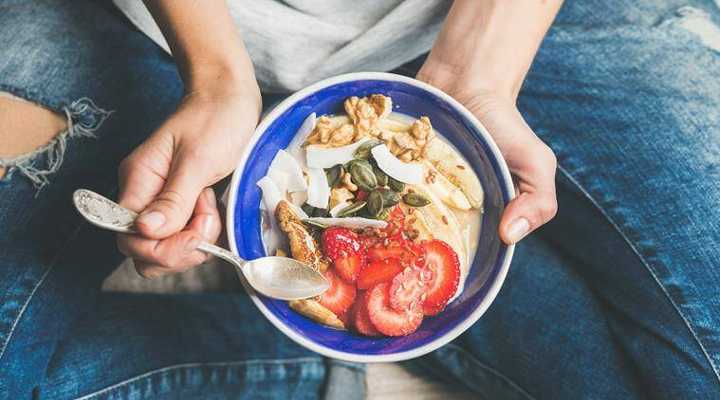5 Nutrition mistakes that contribute to an unhealthy diet

In the fast pace of human lives, many of us tend to ignore our bodies. What we feed ourselves to keep on going for another day was not always on top of our priority list, where it should belong. But, all this suddenly changed when we faced what we can call the biggest crisis of our lifetimes ‘The Corona Pandemic’. After the world suddenly came to a halt, we humans had plenty of time to look back and contemplate on our lifestyles. And all of a sudden conversations around eating healthy picked up pace, compelling people to monitor things like sugar intake, fibre consumption, replacing fast food/junk with homemade food. We have all been making mistakes when it comes to our eating habits, the pandemic just brought things into more perspective when people became aware of how choice of food can make or break their immunity. While all this happened, some of us still might be going in the wrong direction when it comes to our diet and nutrition. Whether it’s for losing weight or gaining it, people sometimes believe in myths and fad diets which can lead to opposite and adverse results. These mistakes are not always intentional but often time diets that are dominated by traditional meals or are followed as a trend also might be causing harm to you.
While everybody is different and might require different dietary recommendations, there are few mistakes we tend to make or shake our immunity that are common for most of us:
Here are the 5 most common nutrition mistakes that you might be doing that lead to an unhealthy diet.
1. Skipping meals: One of the worst and most common decisions made by many people is completely skipping their meals. The misconception that eating less or staying hungry can lead to weight loss still prevails, which is absolutely false. Skipping meals or eating less can lead to drop in blood pressure, tiredness, and nausea due to a lack of nutrients. Trying to keep a check on calorie intake can be the solution. Eating food with more nutrients and fewer calories three times a day is one of the best practices.
2. Instantaneous changes in diet: Some changes can take you a long distance. Now keeping this in mind, people tend to change their diet in order to achieve fast results and it’s also a great practice when done with time and care. Making sudden changes in your diet after listening to hearsay at your gym is not always a good idea. Everyone has a different rate at which they adapt to certain practices. What worked for someone faster might take a bit more time in your case. So, steady changes are always beneficial.
3. Sugar, not an enemy: Giving up on sugar entirely is not a very smart decision. Especially in cases of people with a sweet tooth. Sugar is an important part of our diet and there are a lot of healthier ways to control its intake. Suppressed desires for that sugar rush are also very dangerous to your diet as they may back fire.
4. Guilty midnight snacking: One of the recent not-so-great habits that our generation has vastly developed is midnight snacking. Staying up late and binge-watching, another unhealthy trend goes hand in hand with late-night snacks. What people don’t know is that eating late at night can mess up their digestive system, because according to their bodies they should be asleep. Instead, they hit it with some kind of processed food which is totally opposite of what our bodies expect. Midnight snacks should be avoided at all costs, and sometimes drinking a glass of water can help you do so. When feeling really hungry, going for fruits and nuts would be a better option.
5. Post-workout meal: After a heavy workout session and burning huge amounts of calories our body instantly requires replenishment. There is obvious thinking that we have made up a great space for huge amounts of calorie intake. And this generally leads to overeating which nullifies all your efforts in the previous workout. Eating a balanced diet, including solids and liquid, and eating little less than full is always advisable for better results.






